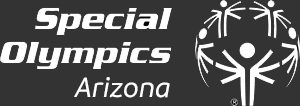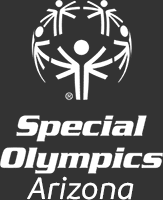
Signs & Symptoms of Apert Syndrome
Signs & Symptoms of Apert Syndrome
Apert syndrome is a rare genetic condition that occurs when the joints in your baby’s skull close too early during fetal development, resulting in the distinct physical characteristic that diagnoses the condition. Apert syndrome, also known as acrocephalosyndactyly, is rare, occurring in only around one in every 65,000 births. Apert syndrome is genetic and autosomal dominant, meaning that only one parent needs to carry the condition for it to potentially be passed on to their child genetically. The Special Olympics Arizona team is breaking down the signs and symptoms of this rare condition.
What Are the Symptoms of Apert Syndrome?
Individuals with Apert syndrome will generally be diagnosed by their physical characteristics, especially those of their skull, eyes, face, hands, and feet. Apert syndrome will also affect other organs of the body, including the brain and lungs.
Physical Characteristics
Apert syndrome occurs in babies when the sutures, or joints, between their skulls close too early during fetal development. This is known as craniosynostosis, and it prevents the bones from developing normally, causing recognizable changes in the facial bones of a baby. Depending on which sutures have closed too soon, your baby could have severe defining characteristics that will lead to an Apert syndrome diagnosis. Specific symptoms include:
Skull
Babies with Apert syndrome will have a skull that is taller than normal and appears pointed at the top, known as acrocephaly. The backside of the skull is commonly very flat, and babies with Apert syndrome often have a high or broad forehead. Their soft spot will often close later than that of their peers.
Eyes
A baby with Apert syndrome will have eyes that are widely spaced on the face and will sometimes show signs of bulging or be slanted down more than average.
Face
A baby with Apert syndrome may have a flat or beak-like nose and may have a cleft-palate, which is an opening in the roof of the mouth. The face will often not be symmetrical and may have differences on either side that do not match the other side.
Hands and Feet
A baby with Apert syndrome will often have short fingers with wide thumbs. In some cases, babies with Apert syndrome will have fingers and toes that are connected or webbed, known as syndactyly.
How Does Apert Syndrome Affect the Organs? [h2]
Aside from the defining physical characteristics, Apert syndrome will also affect other organs in the body in ways that cannot always be seen. Apert syndrome commonly affects:
Brain
Apert syndrome can cause pressure on the brain, which can cause disruptions in the way your child learns or thinks and their cognitive development. Children may face mild to moderate intellectual disabilities due to Apert syndrome.
Ears
Apert syndrome commonly causes the sutures on the side of the head to close earlier in development, which can affect your child’s hearing. The altered formation of the ears could result in hearing deficits or hearing loss.
Eyes
Bulging, slanting, or wide set eyes could cause vision problems for your child.
Skin
Children with Apert syndrome may have skin that produces excess oils, which can cause severe acne. They may deal with sweating more than normal or have patches of skin that are missing hair.
Lungs
Depending on the severity of your child’s diagnosis, they may have difficulties breathing due to malformed breathing pathways in the nose or mouth. This could cause breathing problems or sleep apnea, which is the result of blocked pathways.



